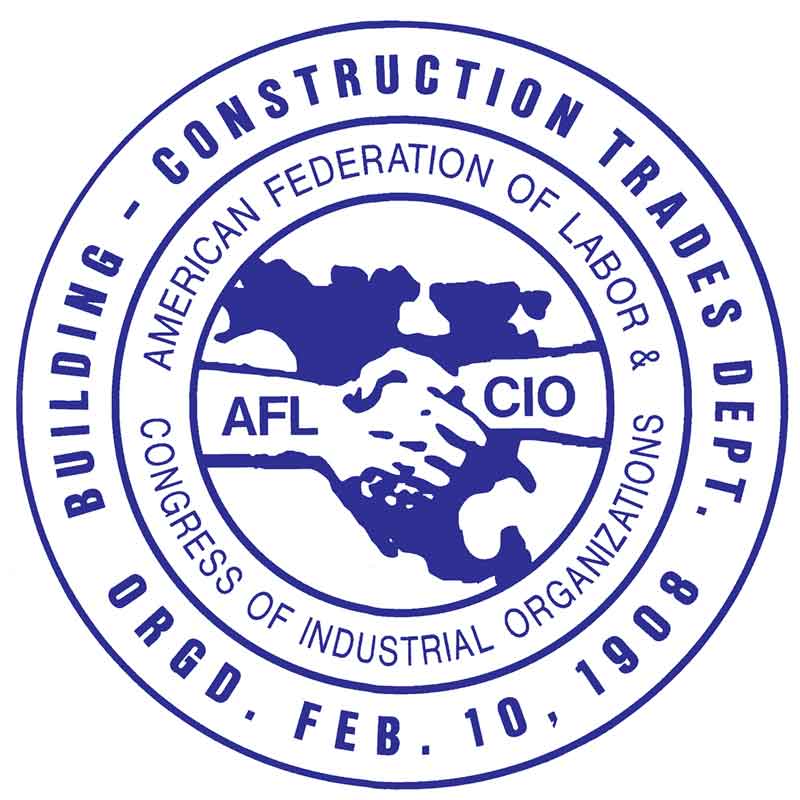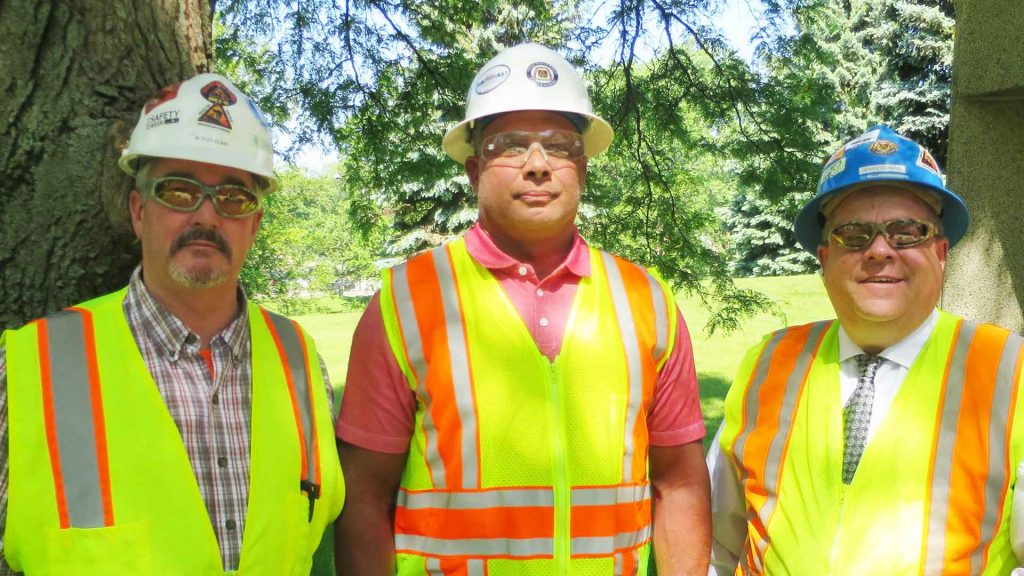About Responsible Bidder Language
Across the United States, public and private construction users are beginning to replace traditional low-bid procurement systems with alternatives that ensure quality and level the playing field.
Some construction users are adopting best-value and quality-contracting bidding procedures, while others are drafting legislation and regulation requiring contractors to pre-qualify before bidding.
The Building Trades Department and its affiliates have been working with a growing number of owners and construction users as they change the way construction services are procured.
Many municipalities are adopting responsible bidder ordinances. These ordinances typically require any contractor wishing to bid on public work to document
Contractors who do not pass these pre-qualifications can not bid on public work.
Rather than trying to chase down poor performing contractors after the fact, these ordinances check that all contractors are in compliance and have a good work performance.
Quick Overview
- Compliance with prevailing wage laws
- Provide health insurance for all their employees
- Affliliated with a state-certified apprenticeship program
- Classify workers as employees, not independent contractors
- Pay the appropriate workers compensation insurance for their employees
- Comply with local residency and minority participation requirements.
Why have responsible bidder language?
Responsible bidder language protects the municipality from shoddy work and unscrupulous contractors who bid low, bill high and cheat to compete.
More and more public and private construction users are demanding proof of compliance with federal and state laws, researching past performance, and assessing training, skills, productivity and other intangibles. This type of language promotes high quality, highly trained workforce and levels the playing field for all bidders.
The term “responsible bidder” for construction contracts means a bidder who meets all applicable criteria and submits evidence of such compliance.
Critical elements to assess when choosing a contractor
Does the contractor pay a living wage to its employees?
Does the contractor pay medical benefits for its employees?
Does the contractor promise a workforce skilled in new materials, procedures and standards?
Does the contractor bring jobs in safely, on time and within budget with a reputation for honesty and integrity?
Does the contractor follow all state and federal laws such as the National Labor Relations Act, Federal Labor Standards Act, Prevailing Wage Laws and anti-discrimination laws?
Doesn’t the Prevailing Wage clause result in higher construction costs?
The Prevailing Wage Act is an Illinois state law that applies to all public construction projects regardless of whether or not the awarding agency has an RBO – the RBO simply reiterates the law, assuring that the contractor hired will follow the law.
But the answer to this question is no – studies have shown that paying prevailing wages does not increase the overall construction cost of a given project.
“Data from numerous state-level studies on public construction costs show no evidence that lower prevailing wages and benefits reduced construction costs charged by contractors performing public works. Lower prevailing wage/minimum wages paid to workers have no measurable impact on public construction costs partly because wage declines lead to offsetting declines in productivity. Further, real savings in public construction costs are more likely to come from investments in worker training, which can make workers more productive, thereby lowering costs without cutting wages.”
– Professor Robert Bruno, Director of Labor Studies, Associate Professor of Labor and Industrial Relations – University of Illinois

